#athene deity
Text
A little appreciation for the domains of a deity that don't get much attention/recognition. I'm making this because I do think it would be lovely if the aspects mentioned below got more attention, and additions not mentioned are welcome so long as it's an obscure part of them. This was going to be just a few and then I got carried away and did the main Twelve Olympians
A little love for:
Apollon as the God of Foreigners (the Arcadian friendship's harmony with Hermes being the god of travelers/way-god couldn't be any louder)
Aphrodite as a Goddess of the Arts (anything love-themed falls to her by default)
Ares of Civil Order, Defender, and Of Courage
Artemis as the Goddess of Dancing and equal Leader of the Mousai
Athene as the Goddess of Carpentry, Metalwork, and Sculpting
Demeter as Friend of Peace and Law-Giver
Hephaistos as the one with a delicate touch that creates beautiful works of art (It isn't so much unknown but honestly the thing I love most and not the first thing one thinks of with his talents/image)
Hera as the Skillful Bender of Language, Bender of Oaths and Promises
Hermes, God of Peace/Diplomacy, Divine Protector of All, as well as a God of Poetry and Knowledge (rightfully the other half to Athene)
Hestia of the Earth, Earth Dwelling and Delighting in the Works of Man, The One That Made Buildings
Poseidon of Fertility, the Plant Nurturer, and Holder of the Earth
Zeus of the People, Gracious and Merciful, Of Refuge, Counsellor
#hellenic polytheism#hellenic pagan#hellenic gods#hellenic paganism#hellenic polytheist#helpol#apollon#apollo#apollon deity#aphrodite#aphrodite deity#ares#ares deity#artemis#artemis deity#athene#athena#athena deity#athene deity#demeter#demeter deity#hera#hera deity#hermes#hermes deity#hestia#hestia deity#hephaistos#hephaestus#poseidon
833 notes
·
View notes
Text

Athena
"Of Pallas Athena, guardian of the city, I begin to sing. Dread is she, and with Ares she loves the deeds of war, the sack of cities and the shouting and the battle. It is she who saves the people as they go to war and come back. Hail, goddess, and give us good fortune and happiness!" - Homeric Hymn 11 to Athena
🦉Athena loves and protects all people of color, disabled people, trans people and all those who are marginalized🦉
#Athene#Athena#Athene deity#Athena *#Athena worship#Athena deity#Athena goddess#helpol#Hellenism#Hellenic polytheism#Hellenic polytheist#Greek pagan#Hellenic pagan#Greek mythos#Greek mythology#goddess
93 notes
·
View notes
Text
Wisdom of the Gods, gift of Pallas
Nurtured in light and patience.
Approach me with thy winged embrace
Leave me not, for happiness without thee has no taste.
português:
Sabedoria dos Deuses, dom de Palas.
Cuidada na luz e na paciência.
Aproxima-te de mim com teu abraço com asas.
Afasta-te nunca, alegria sem ti é deslavada.
56 notes
·
View notes
Text
I wanted to do a digital offering for Lady Athena as well. She’s been with me for almost two years now and I appreciate her so so so much.




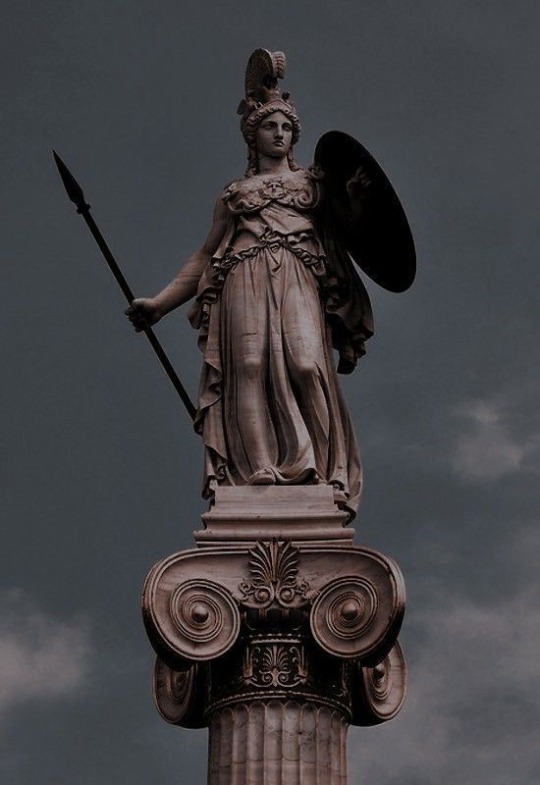




#athena deity#paganism#hellenic devotion#pagan witch#athene#owls#pottery#craftsmanship#thankyouLadyAthena#sheissoamazing#andchill#thank you thank you thank you
21 notes
·
View notes
Note
Athena isn’t allowed stress balls. Or most fidget toys. She breaks them out of that much stress. The amount of times she’s been sat looking incredibly sad and worried while Hera reassured her that the slime will not stain her dress and everything is okay is quite frankly absurd so they’ve banned her from it until they can find one that can withstand her tests.
This goes well with my “Elder Sister Syndrome” Athena hc so I accept it.
#greek mythology#ancient greek mythology#greek pantheon#hera#greek goddess#hera goddess#hera deity#hera greek mythology#Athena#athene#athena goddess of wisdom#athena goddess
17 notes
·
View notes
Text



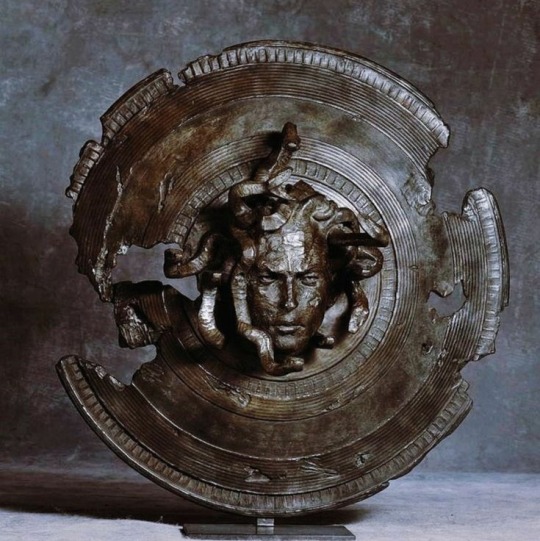





Devotional Moodboard: Αθηνη ( Athena )
Greek Godess of war, truth, law, strategy , counsel, logic, wisdom, heroism, protection , victory, skill and handicrafts.
Some of her titles:
Nikê (Victory)
Areia (Of War , Warlike)
Sthenias (Of Strength, Strong)
Polemêdokos (War Sustaining)
Hippia (Of the Horses)
Sôteira (Saviour)
Alalkomenêis (Protectress)
Promakhorma (Champion of the Anchorage)
Eryma (Defender)
Poliatis (Keeper of the City)
Erganê (Worker)
Amboulia (Counsellor, Of Counsel)
Hellenic Epithets:
Agelêïs (Protecteress Of People)
Agoraia (Protectress of Cities/Assemblies of People)
Alalkomenêïs (Powerful Defender ,or Of the Boeotian village of Alalcomenae)
Anemôtis (Subduer of the Winds)
Axiopoinos (Avenger)
Pronoia (the Foreseeing)
Athena Symbolism:
Aegis
Helmet
Spear
Armor
Gorgoneion
Chariot
Distaff
Shields
Swords
The Olive Tree
Owls
Serpents
Horses
Offerings:
Olives
Bread
Grains
Olive oil
Cakes
Olive tree branches
Owl figurines or imagery
Silver jewellery
Honey
Milk
Books
Strategy games
Quality chess boards
Snake figurines or imagery
Fountain pens
Handmade objects
Clay items ( plates, bowls , vases etc.)
Yellow and / or white candles
Yoghurt
Daggers
Swords (including small decorative versions)
Myrrh incense
Devotional poems
Studying
Learning something new
Using what you learn as a way of growing and developing as a person
Standing up for yourself
Improving yourself
#athena#athene#hellenic paganism#hellenism#hellenic polytheism#hellenic gods#hellenic worship#hellenic pagan#mythologyedit#greek mythology#devotional aesthetic#athena devotee#athena deity#athena symbols#hellenic revivalism#Athena offerings#athena worship#🤍.#deity moodboard
458 notes
·
View notes
Text
Praise great Athena, Patron of students

𝘐 𝘱𝘳𝘢𝘺 𝘵𝘰 𝘈𝘵𝘩𝘦𝘯𝘢, 𝘭𝘦𝘢𝘳𝘯𝘦𝘥 𝘰𝘯𝘦, 𝘤𝘭𝘦𝘷𝘦𝘳 𝘰𝘯𝘦, 𝘥𝘢𝘶𝘨𝘩𝘵𝘦𝘳 𝘰𝘧 𝘔𝘦𝘵𝘪𝘴, 𝘮𝘰𝘵𝘩𝘦𝘳 𝘰𝘧 𝘸𝘪𝘴𝘥𝘰𝘮 𝘢𝘯𝘥 𝘨𝘳𝘦𝘢𝘵 𝘵𝘩𝘶𝘯𝘥𝘦𝘳𝘪𝘯𝘨 𝘡𝘦𝘶𝘴. 𝘈𝘵𝘩𝘦𝘯𝘢, 𝘺𝘰𝘶𝘳𝘴 𝘪𝘴 𝘵𝘩𝘦 𝘳𝘦𝘢𝘭𝘮 𝘰𝘧 𝘵𝘩𝘦 𝘪𝘯𝘵𝘦𝘭𝘭𝘦𝘤𝘵, 𝘰𝘧 𝘫𝘶𝘥𝘨𝘮𝘦𝘯𝘵, 𝘰𝘧 𝘳𝘦𝘢𝘴𝘰𝘯, 𝘰𝘧 𝘤𝘭𝘦𝘢𝘳 𝘱𝘦𝘳𝘤𝘦𝘱𝘵𝘪𝘰𝘯; 𝘺𝘰𝘶𝘳𝘴 𝘪𝘴 𝘵𝘩𝘦 𝘮𝘪𝘨𝘩𝘵 𝘣𝘦𝘩𝘪𝘯𝘥 𝘨𝘳𝘦𝘢𝘵 𝘮𝘪𝘯𝘥𝘴. 𝘎𝘳𝘢𝘯𝘵 𝘵𝘰 𝘮𝘦, 𝘖 𝘨𝘰𝘥𝘥𝘦𝘴𝘴, 𝘵𝘩𝘦 𝘱𝘰𝘸𝘦𝘳 𝘰𝘧 𝘵𝘩𝘰𝘶𝘨𝘩𝘵, 𝘵𝘩𝘦 𝘸𝘪𝘭𝘭 𝘵𝘰 𝘴𝘵𝘶𝘥𝘺, 𝘵𝘩𝘦 𝘸𝘪𝘵 𝘵𝘰 𝘶𝘯𝘥𝘦𝘳𝘴𝘵𝘢𝘯𝘥. 𝘎𝘳𝘢𝘯𝘵 𝘵𝘰 𝘮𝘦, 𝘨𝘰𝘥𝘥𝘦𝘴𝘴, 𝘵𝘩𝘦 𝘨𝘪𝘧𝘵 𝘰𝘧 𝘬𝘯𝘰𝘸𝘭𝘦𝘥𝘨𝘦.
I gave Athena an incense offering to start of going back to school, her presence is always so strong and so inspiring. I appreciate it so much in my life, she really does help push me forward towards my goals.
I hope everyone started today had a good day back!
#hellenic gods#hellenic polytheism#hellenic worship#theoi#athene#athena#athena deity#athena devotee#athena worship
193 notes
·
View notes
Text
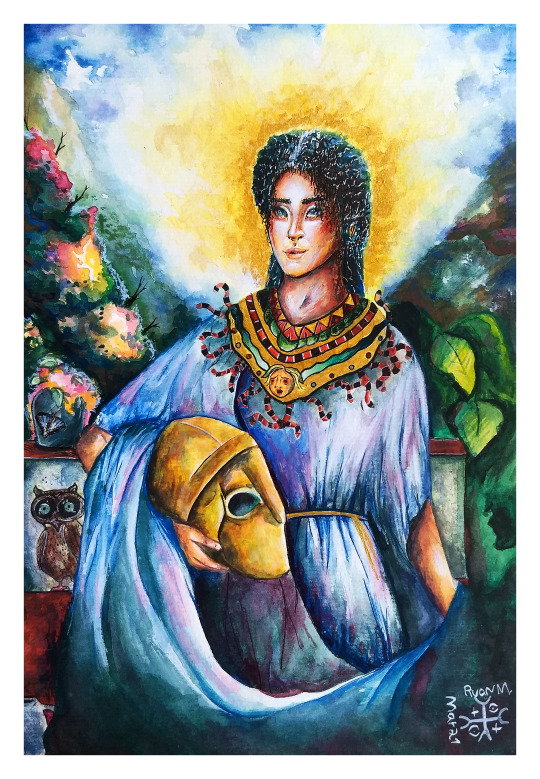
Pallas Athena by Kypris Aquarelas
Prints available here at society6!
#theoi#paganism#pagan#polytheism#goddess#hellenismos#god#deity#art#hellenic polytheism#athena#atena#athene#pallas#palas atena#pallas athena#pallas athene#greek#greece#watercolours#watercolor#aquarela#aquarelle#illustration#theoi worship#hellenic#hellenic pagan#hellenic polythiest#minerva#roman mythology
22 notes
·
View notes
Text
Kallynteria & Plynteria
Athena Polias' Festival of Cleansing
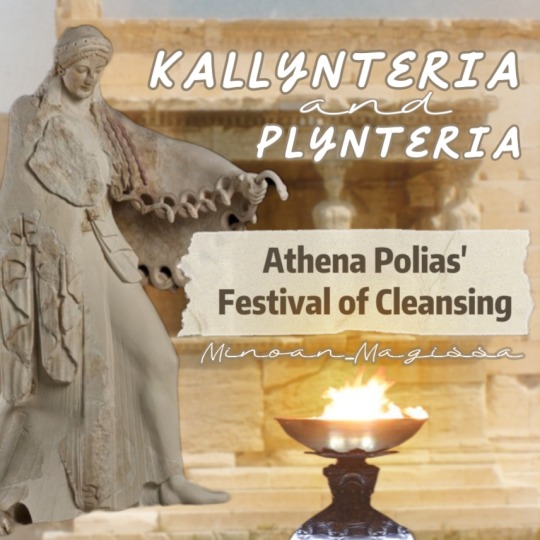
25 Thargelion (Θαργηλιών) was Kallynteria (Καλυντήρια) followed by Plynteria (Πλυντήρια) on 26 Thargelion (or the 19th/20th or 21st/22nd - there's no real concensus). Ultimately, this festival can be celebrated anytime throughout late June. The Modern Greek translations are a bit different but imply cleaning and adornment: "washing machines" and "cosmetics," respectfully.
Stemming from the words "to make good/pure" (kallyn) and "to wash" (plyn), these two days are a festival of catharsis ("sweeping out," if you will) for Athena Polias (Αθηνά Πολίας - The Protectress of The City). On Kallynteria, women thoroughly cleaned Athena Polias' temple in Athens, and her eternal flame was relit by her priestesses. On Plynteria, her statue's garments (peplos & jewelry) were removed and ritually cleansed with water from the sea. During that time, she was concealed out of respect.
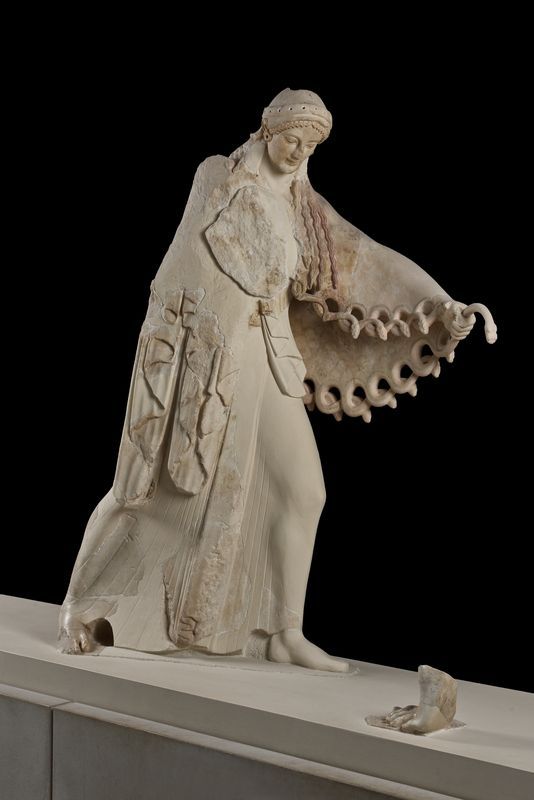
The city was also deemed unprotected by its patroness and thus prone to bad luck until the cleaning was complete. To avoid any mishaps, Athenian businesses and other sanctuaries were closed on both days.
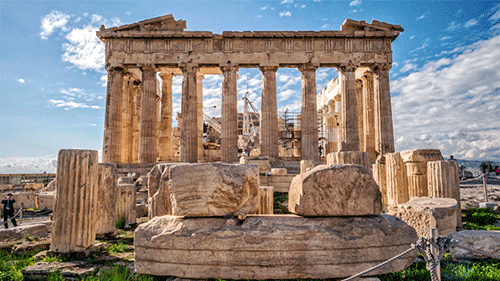
Coincidentally, Tuesday the 13th (not Friday) is considered an unlucky day to the Modern Greeks. This superstition started because The Sack of Constantinople took place on Tuesday, April 13th, 1204 (marking the culmination of the Fourth Crusade). I just find it interesting timing that Tuesday the 13th was right before the two days that were considered unlucky to the Ancient Greeks...
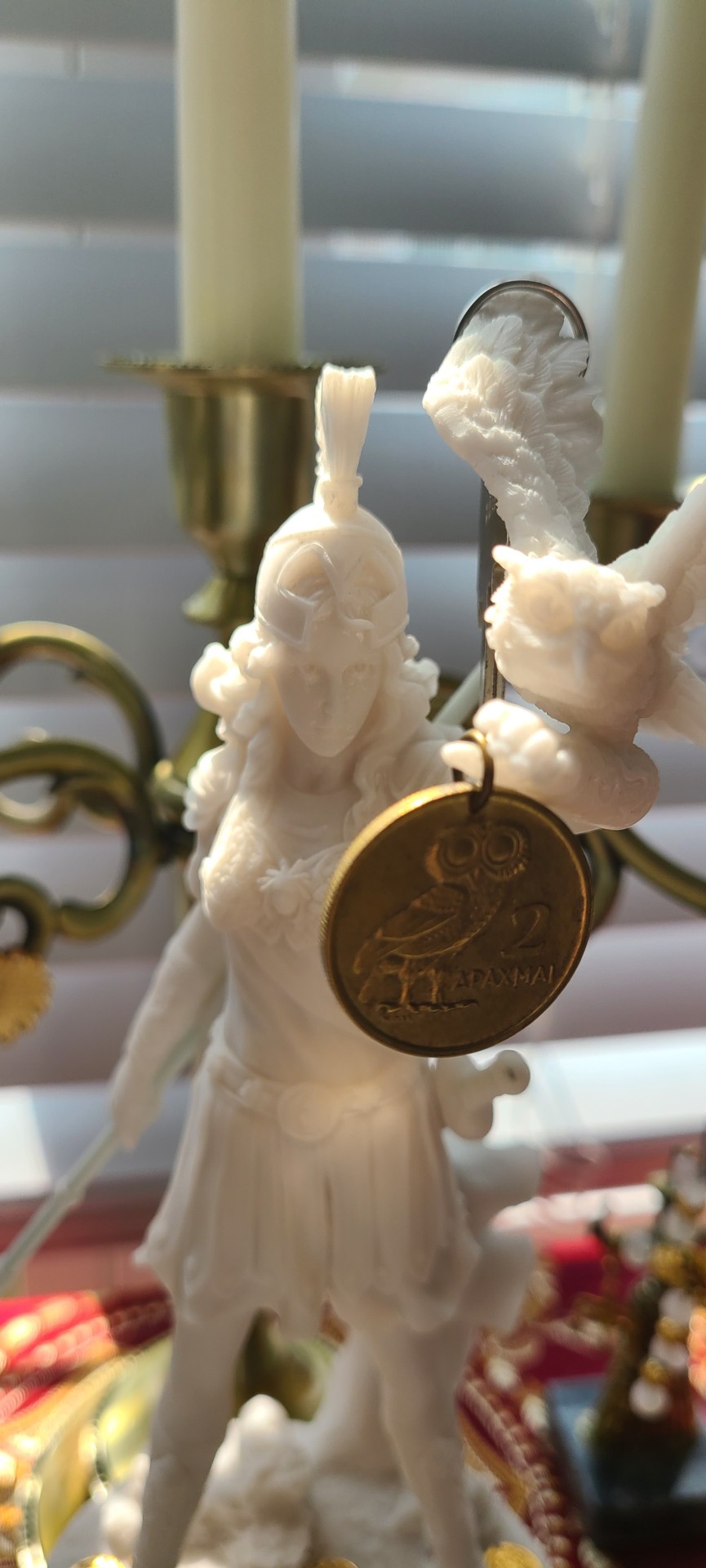
Ways to Honour Athena Polias:
clean your altar & sweep the surrounding area
light a candle as a symbol of relighting the eternal flame
clean Athena's statue (if you have one - do a visualization if not)
*No altar or statue? Consider these two days a time of pre-Solstice or late-Spring cleaning.
*I suggest washing your hands with saltwater before proceeding with the rituals.
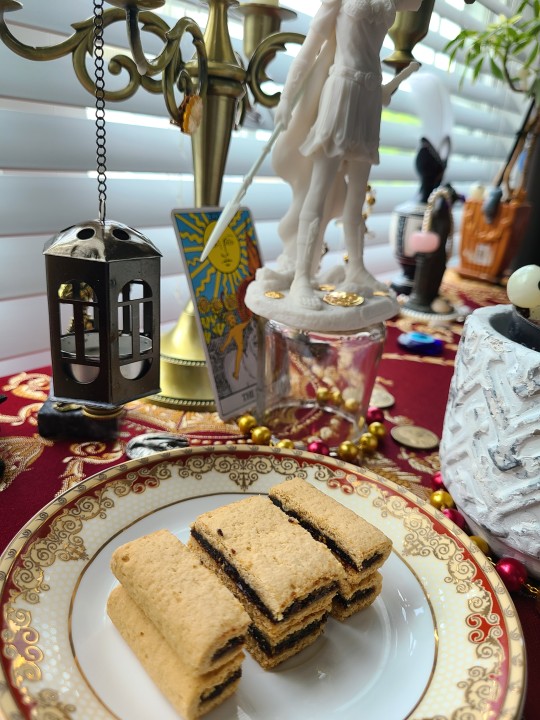
Offerings
(after everything is cleaned)
figs
fig cookies/pastries
jewelry
an ornate cloth
Source: Hellenion.org
#athena devotion#hellenic polytheism#hellenic pagan#greek mythology#hellenic religion#hellenismos#hellenic deities#athena devotee#athena#ancient greece#ancient athens#Spotify
36 notes
·
View notes
Text
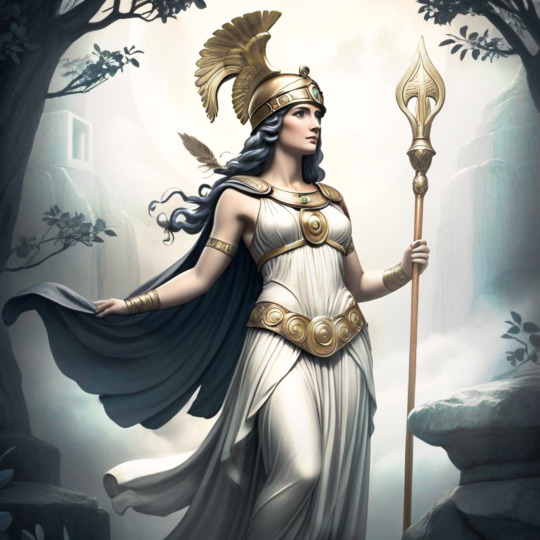
Athena, Ancient Greek Mythology
#athena goddess of wisdom#athene#athena#pallas athena#theoi worship#hellenic deities#hellenic polytheism#greek mythology art#ancient greek gods#mythological art#mythological stories#pagan gods
8 notes
·
View notes
Text
O' Bright-eyed Athene grant me sensibility
Forever-wise goddess, hide not cautious
thought, good judgement or common sense
from me. Let it seep into every thought that
springs into my mind appropriately when
needed. Keep me thoughtful, keep me
observant, keep me without bias and ever
listening. With these gifts given I honor you
in good choices and quick, brilliant wit.
#you know what -- having this open and in the middle of it while I'll make a man out of you suddenly comes on that I specifically tie to#Athene and Hermes alone and knowing either could substitute for the other in this has me chuckling a bit#athene#athena#athene deity#athena deity#my writing
73 notes
·
View notes
Text
Small things I do to honour the theoi <3 (upg)
Pt 1 : Lady Athena
🏛️ listen to music (especially music with greek myth references and music by J. Maya)
🏛️ watch Ted-Ed videos
🏛️ catch up on schoolwork
🏛️ attempt to play chess
🏛️ look into crafts like cross stitch and embroidery (I really want to learn either)
🏛️ take time away from screens
🏛️ meditate and reflect on my past actions
#my posts#helpol#lady athena 🫒#devotional acts#hellenic polytheism#athena worship#deity athena#athene#hellenic paganism#theoi worship
24 notes
·
View notes
Text
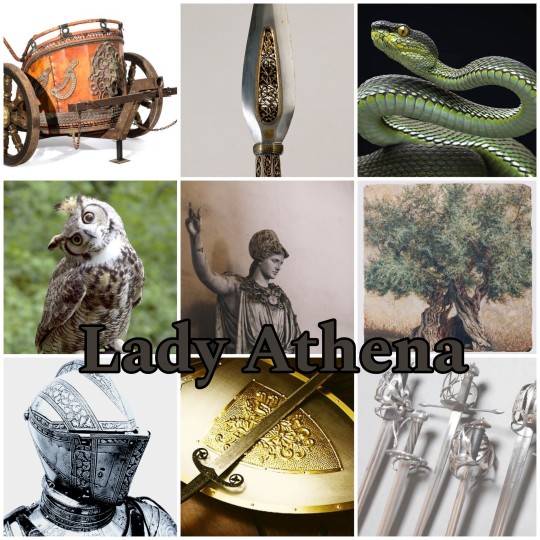
Moodboard for Lady Athena
10 notes
·
View notes
Text
Mother of counsel, all-wise Athene
You of the silver tongue
You whom defeated giants
Mother of the olive, pure Athene
You of the warcries
You whom felled mountains
Mother of wisdom, supreme Athene
You of the crafts
You whom defends mortals
Mother of owls, great Athene!
português:
Mãe do conselho, toda-sábia Atena
Tu da língua de prata
Tu que derrotou gigantes
Mãe da oliveira, pura Atena
Tu dos gritos de guerra
Tu que derrubaste montanhas
Mãe da sabedoria, suprema Atena
Tu das artes manuais
Tu que defendei os mortais
Mãe das corujas, grande Atena!
71 notes
·
View notes
Text
Hi lovelies,
Whilst studying Classics over the last year and a half, I’ve found that there are a lot of reoccurring themes and texts that link together quite nicely (i.e. orientalism, or homeric allusions). However, no theme, text, or even character is as reoccurring as Alcibiades. It doesn’t matter what side of the course you may be studying, what book you may be reading- somehow he is there and honestly, fair enough, his story is iconic. So, without further ado, here is the story of Alcibiades.
Alcibiades was a brilliant and highly skilled Athenian politician, general, diplomat, turncoat (on more than one occasion), and all-round pretty boy (you just gotta trust me on this). Most famously known for switching sides during the Peloponnesian War, his flamboyant nature caused multiple scandals. He embraced laziness, excessive luxury, drinking, and brothel houses. Many sources note that he almost exclusively wore long purple robes in an attempt to feminise himself, and that he also had the planks of his ship taken out to make room for his much softer, pillow-filled, hammock. In his famous comedy ‘Frogs’, Aristophanes remarks about the Athenians, “They love, and hate, and cannot do without him”, which to be honest perfectly sums him up.
Born in Athens in around 450 B.C., Alcibiades was the son of a wealthy politician and a rich socialite. When his father died during Alcibiades’ youth, he was sent to live with his father’s near-distant relative, a leading Athenian statesman by the name of Pericles. According to Plutarch, Alcibiades possessed ample charm and was noted for his rapid speech, as well as a slight lisp. Indeed, Aristophanes pokes fun at him during one of his comedies stating remarking, “How very happily he lisped the truth.” However, from a young age, Alcibiades also displayed a very inconsistent character that would go on to later foreshadow his impulsive adult life. People often remarked that there was only one constant characteristic about him, and that was his desire to be seen as the best. Here’s a fun fact, when partaking in wrestling matches as a child, if he felt that he was losing, he would simply bite his opponent- a surefire way to win if you ask me! As a child, Alcibiades was often accused of being badly behaved and impulsive, a trait which would follow him well into his adult life.
As he entered adolescence, Alcibiades attracted many with exceeding beauty and apparent charm. Due to his social standing, general nature, and charisma, many people attached themselves to him in the hopes of elevating themselves through the looming success of his political career. Eventually, his good looks and charisma attracted the attention of the famed Greek philosopher, Socrates. According to most records, it was Socrates’ desire to aid Alcibiades as he thought that Alcibiades possessed all the makings of a well-balanced, and even kind, individual and that these qualities could be brought out with good counsel. And so, Athenians watched in awe as the young man followed Socrates around and the two developed a seemingly close bond. The two men fought together in an Athenian expedition against Potidaea. During the battle, Socrates defended an injured Alcibiades, thus saving his life. This favour was then returned when Alcibiades saved Socrates in the battle of Delium.
Although the two men had a deep friendship, and quite possibly more, their relationship was rather turbulent and arguably unhealthy. Socrates was famed for his moral moderation, and according to Plato’s symposium (as well as other sources), Alcibiades took this as a personal challenge and began to actively try and pursue a sexual relationship with Socrates, who consistently rejected him. Eventually, Alcibiades’ constant desire for supremacy and fame outweighed Socrates’ teachings and the two parted ways. During Socrates’ trial (resulting in his execution) he was charged with ‘corrupting the youth’ and the court would use the future actions of Alcibiades as evidence of Socrates’ corruption. I mean imagine being the main reason your ex boyfriend gets sentenced to death.
After his split from Socrates, Alcibiades entered Athenian politics, making a distinct impression on his first appearance in the Athenian assembly (something about his hiding a quail under his robes and then letting it escape and having to interrupt the assembly to catch it).
In 421 B.C. the Athenian politician Nicias negotiated a peace treaty between Athens and Sparta, bringing an end to the extensive war between the two states, Nicias’ victory angered Alcibiades- demonstrating the truly darker and jealousy-driven side of his personality. Alcibiades decided that he would do everything he could to end the peace before it came into full effect, literally out of pure spite. The opportunity presented itself when the Spartan embassy came to Athens to negotiate the terms of the treaty. Alcibiades invited the ambassadors to his house for dinner the night before the negotiations and asked them how much authority they had been given by Sparta regarding the next days’ negotiations. The ambassadors informed him that they had been given full authority to act as they saw fit in the negations, to which Alcibiades then informed the Spartans that they should not reveal the full extent of their authority to the assembly lest the Athenians try to take advantage of them. He advised them to tell the assembly that they had limited powers and ensured that he would handle the rest. The following day, upon informing the Athenian assembly of their apparent powers, Alcibiades stood in protest and called the Spartans deceitful. The assembly quickly turned on the confused ambassadors and chased them out of the city. The peace was ruined, war renewed, and Nicias looked like a fool.
Upon the renewal of the war, Alcibiades was made a general and went off to help communities that had been pressed by the Spartans. As a result, he managed to liberate the Argives, the Eleans, and Mantinea, and formed a coalition with them against Sparta. With the help of his new alliances, he also managed to liberate the people of Argos and convinced them to rebuild their city using Athenian materials, an act which won him great support amongst Athenians.
In 415 B.C., Alcibiades began to push Athens towards invading the island of Sicily, a territory that Athens had been eyeing since the rule of Pericles. His close friends Socrates and rival/ fellow general Nicias tried to prevent the invasion. However, Alcibiades’ charisma and managed to sway the assembly who appointed him, Nicias and Lamachus as generals of the expedition. Plutarch goes as far as to suggest that Nicias was appointed as a general to balance the impulsivity of Alcibiades and Lamachus. However, seem before the expedition was set to take place, an ill omen appeared. During the feast of Adonis, several sacred busts of Hermes were vandalised. The vandalism caused a wave of panic throughout Athens who saw it as bad luck for the expedition. Although initially thought to be the wrongdoing of spies from Corinth, the blame began to shift over to Alcibiades. His enemies suggested that he and his friend be taken off of the Sicilian expedition and be made to stand trial.
However, as you may recall, the only reason the Argives and Mantineans agreed to send troops on the expedition was because of Alcibiades, and so the Athenian assembly feared that if he were taken off the expedition, the others would leave. The assembly, therefore, agreed to postpone his trial until he returned from his expedition despite Alcibiades requesting that the trial take place beforehand as he feared that in his time away people’s concerns and doubts about him may be exacerbated.
The Sicilian expedition began with a victory for Athens, but back in Athens, the pot was being stirred. Alcibiades’ enemies managed to take him to trial in absentia. Alcibiades was convicted on all accounts and sentenced to execution upon his return. The Athenian assembly sent a ship to bring Alcibiades back from Sicily, but the crew were given explicit instructions to not let him find out why he was being summoned, fearing that it could cause mutiny in the army.
Now here is where the story gets INTERESTING. Alcibiades left with the Athenian assembly, but not before sending his troops to help prevent Messena from falling into Athenian hands. He knew why he was being asked to return and when his ship stopped to resupply, he made his escape. Plutarch remarks that upon escaping Alcibiades claimed “I will make them (Athens) feel that I am alive.” Trust me, he did just that.
Alcibiades fled to Argos but soon found it too dangerous and asked Sparta for sanctuary. He promised advice to Sparta in their war against Athens in return for safety and protection. Sparta welcomed him into the city and in return Alcibiades advised them to renew the war and fortify their hold in Deccelea. Sparta, thanks to his advice, began to achieve several victories against Athens and encouraged many islands to revolt against Athenian control. Guys icl, I aspire to be this spiteful. Whilst in Sparta, Alcibiades embraced stoic Spartan culture, cutting his hair, taking cold baths and eating with the Spartan troops. Indeed, Plutarch claims that Alcibiades was a genius adaptor and was able to change his character to suit the culture he was immersed in.
However, Alcibiades’ time in Sparta came to a very abrupt ending because, get this, he was having an affair with the Spartan king’s wife. Whilst King Agis was away fighting the Athenians, Alcibiades got his wife Timaea pregnant. Alcibiades’ treachery, as well as the growing resentment of the Spartan army as he was receiving all the credit for the Spartan victories, led to yet another speedy escape for Alcibiades. With the two most powerful Greek states wanting him dead, Alcibiades made his way to Persia.
Alcibiades found sanctuary with the Persian king Tisaphernes, who famously hated the Greek people. Whilst in Persia, Alcibiades embraced pomp and flamboyance. The Persians had been aiding Sparta in the fight against Athens, but Alcibiades advised the Persians to stay on amicable terms with both groups. At the same, Alcibiades sent word to the nearby Athenian navy at Samos and promised that he could arrange a Persian-Athenian alliance. However, Alcibiades knew that the Persian empire would never help the democratic state of Athens, so Alcibiades decided to, get this, literally overthrow Athenian democracy and set up an oligarchy. Alcibiades sent a friend to Athens to instigate a rebellion amongst the aristocracy, and the rebellion was a success. Democracy was overthrown, and an oligarchy consisting of nearly 400 aristocrats was established. Honesty, I’m still reeling over the fact that he just decided to overthrow democracy out of spite.
Alcibiades then joined the Athenian navy at Samos, who themselves were pro-democracy. They, unaware of his actions, appointed him general and begged him to sail home and restore democracy. However, Alcibiades convinced them that Athens in its current state could not survive as a democracy amid a civil war. With the navy at his side, Alcibiades went on to defeat Sparta at Abydos. He then proceeded to return to Persia where he was immediately thrown in prison, but no matter because he escaped less than a month later.
Alcibiades then went on to rejoin the Athenian navy and defeat Sparta in multiple locations. He eventually returned to Athens and was celebrated as a hero. He was acquitted of all his previous crimes and his property and wealth were restored to him. To further improve his image, Alcibiades organised protection for members of the Eleusinian mysteries. Many of Athens’s political leaders feared that Alcibiades’ popularity would lead to him attempting to become a tyrant, and sent him back to war to try and prevent this.
Unfortunately, his success was once again short-lived. The Athenian navy needed funds to compete with a Persian-backed Sparta, so he left the navy under the control of a general named Antiochus whilst he went to search for funds. Alcibiades ordered Antiochus not to engage in conflict with Sparta, but less than a few days later he did. This resulted in an all-out Spartan victory.
Back in Athens, Alcibiades’ enemies accused him of mismanaging the army and claimed that he left not to find funds but to drink and visit brothels which, for probably the first time in his life, was not true. The people of Athens once again turned on Alcibiades, who was then forced to flee to Thrace. Alcibiades embraced Thracian ways, organised a Thracian mercenary army and proceeded to plunder Northern Greece. Again the spite of this man. However, the Spartan king still wanted Alcibiades dead and sent assassins after him. Alcibiades fled to Persia hoping to get aid for Athens from the Persian king directly. Whilst he was awaiting a meeting with the king Alcibiades resided in a small village with his mistress Timandra. But, one night assassins burnt down his house whilst he slept.
Some accounts claim that Alcibiades ran out of the burning house in women’s clothing and fought the culprits to his death, whilst others claim that he died in the fire. All that is definitely known is that this was his final fight and he was buried alongside his mistress in the hills of Phrygia.
Alcibiades lived life to its fullest, evidently had no regrets, and was just all-round crazy. To be honest, I’m sort of high-key in love with him. I hope you all enjoyed reading about his crazy life as much as I did! Enjoy the rest of your weekend :).
~Z
#classical studies#greek mythology#ancient rome#ancient greece#dark acamedia#roman mythology#hellenic deities#ancient world#classics#history#athens#spartan#alcibiades#the absolute loml#im not kidding#i love him
19 notes
·
View notes
Photo
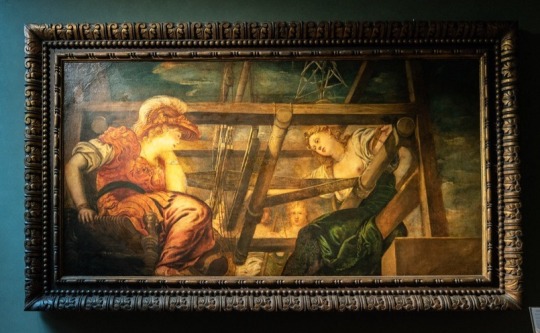
Athene and Arachne, c.1475-85 by Jacopo Tintoretto (Robusti)
Source
#Athena#Athene#Arachne#Athena and Arachne#Greek Mythology#Athena deity#The Theoi#classical art#beautiful art
21 notes
·
View notes